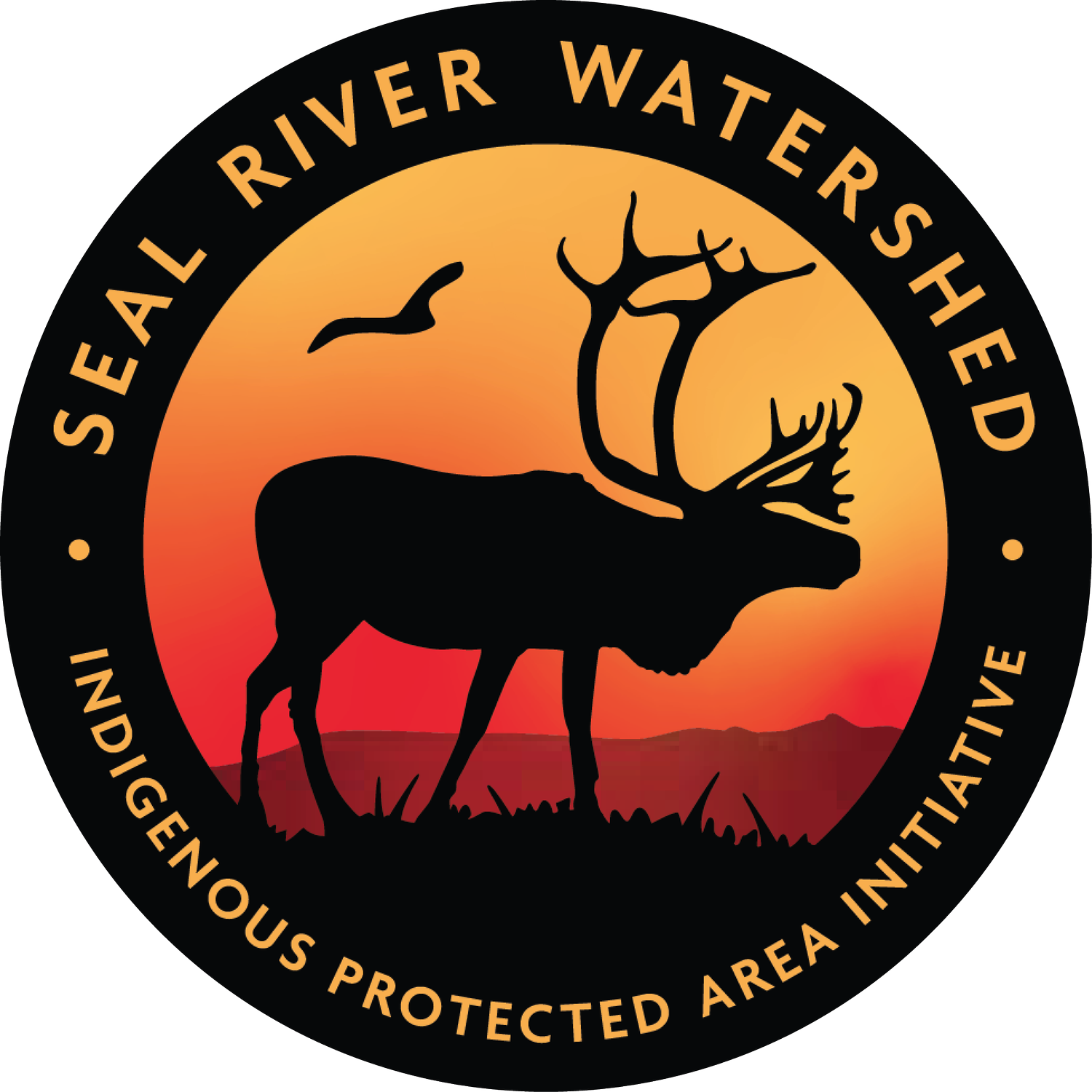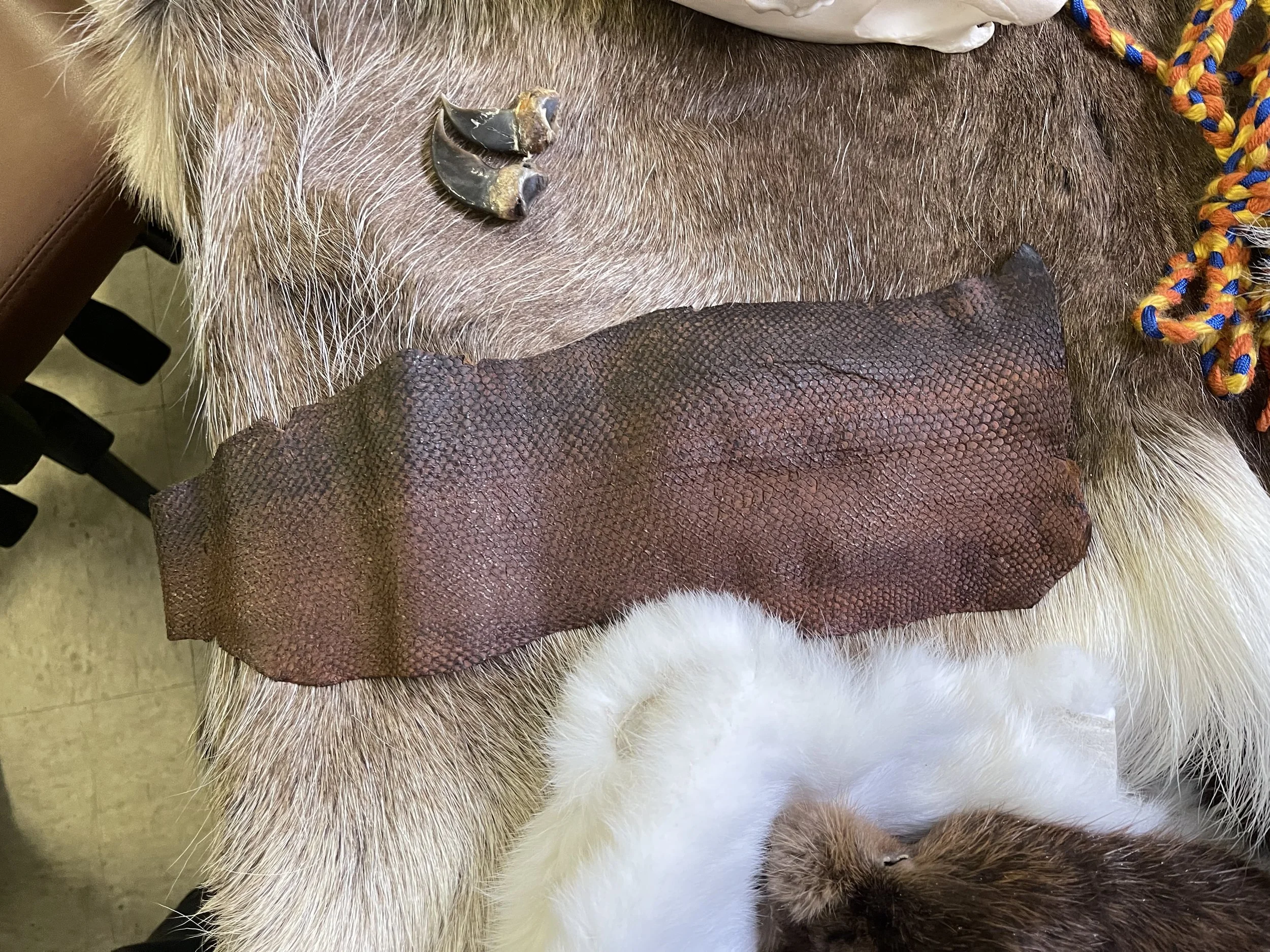Guardians Learn about Ethical Harvesting from “Superheroes”
March 13, 2023
By Chaz Collier
I had one of my best days on the land this fall. As part of the Land Guardians training on ethical harvesting, I went out with three hunters. These guys are young but loaded with knowledge. One of them skinned the first caribou within minutes; it was a masterpiece. I have family who are hunters and might get one moose in a day. These guys got nine caribou in four hours. They are superheroes.
They taught me so much about how to use every part of the caribou. That’s what ethical harvesting is all about: There is no wastage. All the meat gets eaten by community members, and we took the hides and turned them into drums. We left the stomachs on the ice for the wolves and used everything else.
It’s good to learn these skills, because there’s a lot of harvesting going on in the community. The Seal River Watershed Alliance wants to support these hunts and help provide Elders with meat.
It’s feels so good to have the caribou close again. When I first got to Tadoule Lake, they weren’t around because of the tragedy that happened about seven years ago, but the caribou have returned, and I feel lucky to witness it. It’s something you can’t put into words until you are out on the land. Ernie Bussidor says it’s utopia, and I agree.
The hunters showed me so many tricks that day, like how to take off the head of the caribou in four motions. I was sweating trying to do it, but my hands were frozen, so the guys showed me how to shove my hands between the hide and meat. That warmed me up right away. I also loved frying kidney over an open fire. I surprised those guys—and myself—with how much I liked it. It gives you the boost of energy you need to finish the day.
The guys I harvested with are in their 20s, but it’s like they have been on the land for 40 years. It’s in their blood and it’s in their DNA. It’s a part of them. That’s why this land has to stay with us. Being on the land makes me want to fight for it even more. My daughter is Dene, and I want her and her grandchildren to have this land.
It’s why we are working to protect the Seal River Watershed. And it’s why the Land Guardians are learning as much as we can about stewardship.
One of our recent trainings was a three-day course on Dene Cultural Harvesting taught by Angela Code. We did a lot of hands-on learning about hunting, shot placement, and uses for parts of the caribou, from making tools out of bones to rattles from the claws. Everybody was fascinated all three days. One of the items that grabbed a lot of attention were the fish hide she showed us how to make. They are light and tough and can be made from just about any fish you find here.
Angela also taught us a lot about Dene culture and history. We watched videos and talked about the relocation of the Sayisi Dene. It’s so important that we understand this history we are part of and how it affects what’s going on in the community now.
That’s why I love working for the Seal River Watershed Alliance. They have offered so much training. What I learned in that harvesting course I can teach me daughter: I was taught and now I can teach her.
Before this, I worked as a grocery supervisor for the North West Company. I love the land, but working retail means you can’t get out so much. Since joining the alliance, I’m always on the land, and I can’t believe this is my job. When it comes to this work, the community, and the land, the more I learn, the more I love it.




